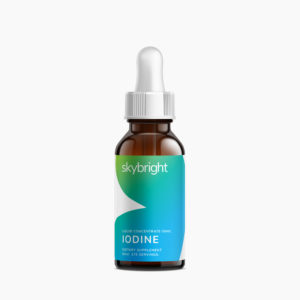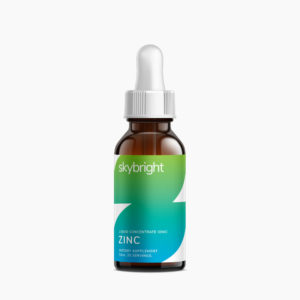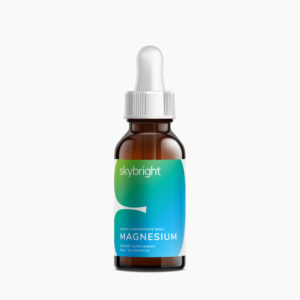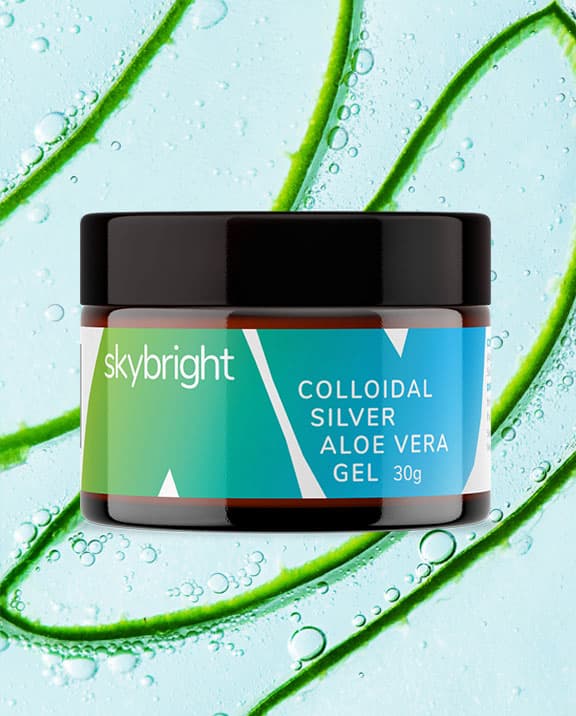
Remineralise – and put back what’s missing from our food.
Over the past few months, many of us have taken the chance to evaluate our lifestyle and our health and wellbeing, especially with regard to strengthening our immune system and enhancing our ability to fight off infections during the winter months.
Getting enough sleep, exercising often and eating a balanced, whole-food diet are all important factors in nurturing our health, for both mind and body. But often we’re lacking important minerals, that are not present in either the foods we eat, or in the water we drink.
This is due to intensive farming techniques, which strip these minerals from the soil in which our food grows. If the minerals are not in the soils in the first place, they will not be present in the plants and therefore in the food we eat. Many of us drink filtered or bottled water, which removes the essential minerals and trace elements we need, as well as unwanted pathogens and toxins that make it safe for drinking.
These practices can lead to mineral deficiencies, which then lead to common complaints such as fatigue, irregular heartbeat, depression, and sleep issues. This also ultimately compromises our immune system, and makes us vulnerable to infections and illnesses.

The importance of minerals.
In today’s modern, fast-paced society, supplying our bodies with the minerals they require is difficult. The lives we lead often put increasing demands on our stores of the nutrients. The harder we push ourselves, the more we need. In times of stress, our body uses more vitamin B, vitamin C and magnesium and zinc in particular.
Minerals such as such as magnesium, potassium, iodine and selenium are the catalysts for all the vitamins and other nutrients your body uses for developing and maintaining good health.
Every second of every day the human body relies on these minerals and other trace elements to conduct and generate billions of tiny electrical impulses. Without these impulses, not a single muscle, including your heart, or your brain would be able to function.
Think of your body like a circuit board. Ionic minerals conduct electricity throughout the body, bringing energy where it needs to go in order for each cell and system to work. Without these minerals, your heart couldn’t beat, your muscles couldn’t contract, your brain couldn’t function and your body couldn’t absorb nutrients.
The human body cannot produce minerals like calcium and magnesium as they cannot be made by living organisms. We have to obtain them from the food we eat, or the water we drink. Obtaining them from water is optimal, as it helps with the bioavailability of these minerals, enabling them to be more effectively absorbed into our system.
“Soil is the basis of all human life and our only hope for a healthy world… all of life will be healthy or unhealthy according to the fertility of the soil”
Dr. Alexis Carrel, winner of the Nobel Prize in Physiology or Medicine
New Zealand soils and mineral deficiencies.
As a country, New Zealand is still very young, and it has young soils. Where once they were rich in nutrients, our agriculture and farming over the years has stripped the topsoil of important trace minerals and elements.
With the use of common fertilisers, there has been an increase in the growth rate of foods and an increase in yields, but we’ve also seen a steady decline in the nutritional value of the foods we eat over the past decades. This has lead to well-known deficiencies in our soils, including selenium, iodine, zinc, chromium and boron.
Up to 91% of New Zealanders are said to be deficient in iodine, an essential trace element that supports energy production and plays an important role in supporting immune function. The biggest groups at risk are pregnant mothers and people with autoimmune issues. You can get iodine from seaweed or miso soup or by simply adding sea salt to your drinking water or sprinkling it onto your food.
Selenium levels are also low in New Zealand soils. It’s estimated that many of us are only getting as little as 10-20% of the daily amount we require. Selenium is an antioxidant and also supports immune system function, as well as reproductive health, mood, thyroid function and cardiovascular health. Often supplementation is required but you can get it from eating beef, fish or a few brazil nuts.
Zinc is an important trace mineral, especially in New Zealand due to soil depletions. It’s a a powerful antioxidant, and great for skin, eye and hair health. Seafood is a rich source of zinc, as well as red meat. Studies suggest that supplementing with zinc may have the potential to improve immunity in the elderly, and in healthy individuals with marginal zinc deficiencies, supplementation can enhance the immune response, and may reduce the length of the common cold.
Producers are paid on the weight of their produce rather than how mineral rich the vegetables and fruit are. The processing of foods, such as peeling, extracting, heat-treating and early picking for storage and transportation across the country can further diminish the nutrient value in the foods we eat.
Until we are able to put trace minerals back into the soil through regenerative agriculture and sustainable farming, we must look to other methods to obtain the full spectrum of minerals and trace elements that we need for optimal human health.

The water we drink.
Water can and should be a significant source of trace minerals and elements that can maintain our health and wellbeing.
With concerns about the quality of public water supply in some areas of New Zealand, we often resort to drinking bottled water or filtered water, (reverse osmosis, distilled) which can eliminate virtually every mineral the body requires to maintain good health. In our efforts to drink ‘pure water’ this filtration eliminates the harmful substances, but also removes the important trace elements and minerals we need every day. Reverse osmosis water filters can also harbour harmful bacteria if not adequately maintained.
We need to remineralise.
Eating a plant-rich diet, while essential for good health, isn’t enough on it’s own to provide you with all the minerals and nutrients you need, as modern farming has stripped the soils of its mineral content. This has lead to significant deficiencies across the population which are increasing with our modern lifestyles, added to the prevalence of processed and convenience foods, and an ageing population.
Eat organic and seasonal where you can, eat leafy greens with every meal or at least daily. Grow your own if you have the space at home or shop at local farmers markets to ensure freshness as well as supporting the local producers and economy.
We are all aware of the need to reduce, reuse and recycle, but with regard to nutrition, we need to rebalance, replenish and remineralise. Minerals and trace elements are vital to our everyday health and wellbeing. We need them to strengthen our immune system, stave off infections and feel more energised.
Adding minerals like sea salt or liquid mineral drops to your drinking water may be the best place to start to feel good and get back into balance. These little changes are easy to implement into your daily routine and can make a big difference to your health.
-
 Iodine Liquid Mineral$27.90
Iodine Liquid Mineral$27.90 -
 Zinc Liquid Mineral$27.90
Zinc Liquid Mineral$27.90 -
 Selenium Liquid Mineral$27.90
Selenium Liquid Mineral$27.90 -
 Magnesium Liquid Mineral$27.90
Magnesium Liquid Mineral$27.90
Disclaimer:
The information in this article is not intended as a medical prescription for any disease or illness. Nothing stated here should be considered medical advice. Use as directed. If symptoms persist, consult your healthcare professional.

